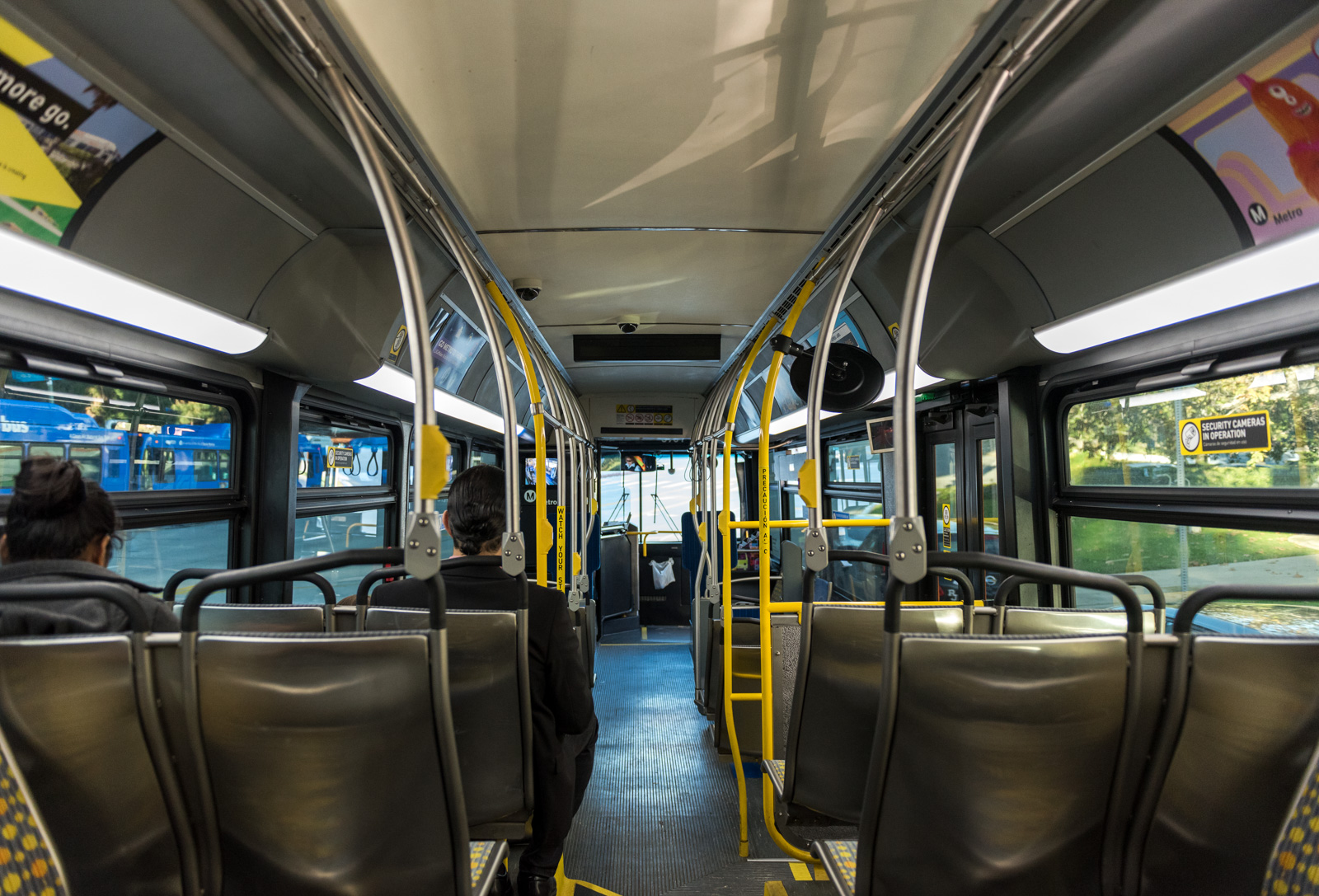LA Metro, ride-share services to offer free or discounted rides on Election Day

(Daily Bruin file photo)
By Stephanie Lai
Nov. 1, 2018 2:25 a.m.
This post was updated Nov. 1 at 12:23 p.m.
Voters commuting to polling locations will be able to take the Los Angeles Metro bus and rail transit system for free on Election Day.
The Metro board of directors unanimously approved waiving the standard $1.75 fare on Nov. 6 in a meeting Thursday. Eric Garcetti, a vice chair of the board and Los Angeles mayor, issued the motion. The board is also partnering with Access Services to provide free transportation for voters with physical disabilities.
Metro also motioned to begin working with the county registrar’s office to provide free fare on all future election days in LA. This is the first time Metro has offered free transportation on Election Day.
Rick Jager, a Metro spokesperson, said all 2,200 buses and 6 transit lines within Los Angeles County are included. Metro’s bike-sharing system will also provide free fares for the first 30 minutes of use at any station kiosk, after which riders will have to pay $1.75 per 30 minutes. In addition, Access Services is booking appointments for free van rides for individuals with disabilities to get to polling places, Jager said.
Metro estimates it will lose $600,000 in revenue from this service, Jager said.
This estimate does not include revenue generated from prepurchased monthly or quarterly passes, which is not affected by the free fare. Jager expects the volume of riders will not exceed the average number of people who use Metro buses and trains each day – about 1.1 million – despite the free fare.
The board decided to waive the fare based on a 2016 study conducted by the Massachusetts Institute of Technology that found 30.8 percent of U.S. nonvoters attributed transportation problems as a factor for not voting. 51 percent of California nonvoters did not vote in the 2016 election because they lacked transportation, according to a LA City Council motion.
Michael Manville, an associate professor at UCLA’s Luskin School of Public Affairs, said the free fare would have a minimal impact on Westwood residents and UCLA students because Metro prices already accommodate low-income populations.
Other factors like late shifts, unaccommodating work hours, inconvenient polling stations or infrequent transit schedules may contribute more to not voting, Manville said. He added that he thinks the free fare could not do any harm, however.
“When we have a transit-dependent population, in a region that is oriented largely around driving, those folks will have trouble moving around relative to everyone else,” Manville said. “That obstacle isn’t because the transit is expensive, but the price they pay is time and convenience.”
26.2 percent of UCLA’s student commuter population used public transportation in 2018, according to a report by UCLA Transportation. An estimated 1,944 students have Metro passes, according to UCLA Transportation, and they will not be affected by Metro’s decision.
Ride-sharing companies Lyft and Uber have similar offers as well. Lyft is offering 50 percent off rides to polling locations, according to a Lyft press release. Uber is offering $10 off a single ride to a polling station using a polling locator button on the app, according to an Uber press release.
Los Angeles Department of Transportation municipal transit systems are also offering free fare for DASH, Commuter Express and Cityride services.
Rachel Storer, a commuter and staff member in the department of psychology, said the free fare would save her money and eliminate the hassle of driving.
“I think this is great considering the price of parking in LA. I’d preferably take the Metro,” Storer said. “I know a lot of people did not vote because they couldn’t get to polling spaces.”
Manville suggested increasing the number of polling locations or the frequency of transit times as possible solutions to voter transportation.
“It’s important to provide transportation access to everyone in the county on Election Day so they have the opportunity to vote,” Jager said.


